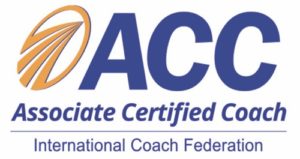The decision to hire a coach of any kind is significant and should not be taken lightly. However, if done correctly, the coaching process can use incredible resources, including time, energy, and finances.
Here are some self-reflective statements I ask all prospective clients to internalize before beginning the coaching journey:
- I recognize that there is value in having a partner that holds a vision for me of my greatest potential and who is working to help me function to my best ability.
- I am eager to take the actions necessary to accomplish my dreams and change patterns that do not serve me.
- I know that my own answers are within me. I believe that through guidance, feedback, and my own sense of right action, I can discover those answers.
- I am willing to try new perspectives that may differ from those I currently hold.
- I know that life and self-discovery can be fun and satisfying. Self-awareness and fulfilling my life purpose are very important to me.
- I recognize the value of coaching and see it as an investment in my own growth and happiness.
- I am willing and able to pay for this and handle my coaching fees responsibly.
- I can be relied upon to set up systems to be on time for coaching calls.
- If I feel I’m not getting what I expect or need from my coach, I will share this as soon as possible and make explicit requests to my coach to get what I need.
Most answer with a resounding “yes” to most, if not all, of these statements. Even with an attitude devoted to change, other situations would be helpful to address before engaging in the coaching partnership.
Time: I ask clients to meet at least every other week for 50 minutes in my practice. In addition to the meeting time, additional time resources may be necessary to implement the strategies developed during the coaching appointment. If time is not available to implement strategies, the coaching process will be less effective. It is not uncommon for clients to develop strategies during the appointment but not devote the time to implement them. If this is the case, now might not be the time for the coaching process.
Energy: Coaching is generally focused on change. Change can be energy-consuming, both emotionally and physically, depending on the outcome the client desires. Therefore, it’s essential to analyze what else is on the plate before committing to the coaching process. For example, one client recently paused our ADHD coaching to take on a short-term coaching curriculum focused on her medical specialty. There simply would not have been the energy bandwidth for both.
Finances: Although the time and energy resources may be sufficient, sometimes the financial resources are unavailable. A sliding-scale opportunity is available for some clients. Still, for some, the financial outlay of coaching puts a burden on their financial situation, creating stress. One client indicated her desire to start the coaching process in three months after she’d had the opportunity to get her finances in order.
Self-Care: As mentioned, coaching can take a lot of energy. We create energy stores by implementing good self-care strategies, including sleep, exercise, nutrition/hydration, meditation, etc. For example, a recent prospective client decided to spend the next 30 days focusing on better sleep and exercise. The increased self-care gave his brain more opportunity to be ready for the coaching process.
Medication: Medication is the best way to mitigate challenging ADHD traits. Although medication does not work for everyone, it is highly effective for most individuals with ADHD. Although medication does not teach the skills that ADHD coaching provides, it does allow for better assimilation of the learnings. Having had a medication conversation during a recent intake, the prospective client decided to seek and implement ADHD medication before starting the coaching journey.
Sometimes, the desire for change isn’t enough to make the coaching process effective. Ensuring that time, energy, financial, self-care, and medication challenges are addressed before embarking on a coaching journey will make the process significantly more effective.
Are you ready to embark on a coaching journey?
If not, what needs to happen to get you there?
If you are, congratulations! I hope you find the best coaching partner to go with you on the journey.
Cindy Jobs, PCAC, ACC
Looking for more information?
Click here for ADHD-friendly Time Management Tools
Click here to schedule a complimentary breakthrough session.
For more helpful information, follow me on Facebook.







